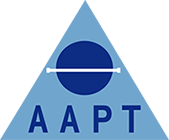News
CPA under new ownership
From April 8th, the United Kingdom Accreditation Service (UKAS) will take ownership of the CPA.
CPA has served pathology services in the UK very well since its inception in 1992. However, the original structure and organisation established in 1992 is now limiting CPA’s ability to adapt and develop its role.
The recent report of Lord Carter into NHS pathology services also raised criticisms of CPA. One of these set out a generally accepted requirement of any mature service accreditation body; that it should be independent of those who purchase the service and independent of those who provide the service. The Department of Health had several years ago divested itself of the shares it owned when CPA was first formed, so this criticism related principally to CPA having a Board where professional organisations are in the majority.
UKAS (www.ukas.com) is the sole national accreditation body recognized by the UK Government and by the EU to provide accreditation services to international standards. CPA has up to now been providing accreditation linked to ISO standards by virtue of an agreement with UKAS. UKAS is an independent not for profit organization, funded by its fee structure and not dependent on the Government. It is currently developing service accreditation systems in other areas of healthcare, notably radiology, in collaboration with the Royal College of Radiologists. It has for some time been clear that CPA could only continue to function by having a very close association with UKAS, and Lord Carter’s report has sharpened the focus on the nature of that relationship.
The CPA Board has carefully considered the options for the continuation of laboratory accreditation in a way that will best serve the interests of patients. We are pleased to announce a resolution of these problems. With effect from 8th April 2009 UKAS has purchased CPA, which was previously owned by 6 professional bodies: The Royal College of Pathologists, The Institute of Healthcare Management, The Institute of Biomedical Science, The Association for Clinical Biochemistry, The Association of Clinical Pathologists and The English Community Care Association. The Councils of all four of the professional pathology bodies concerned have considered this proposal and all have agreed that this is the best way forward. We firmly believe that accreditation of pathology laboratories is in a safe pair of hands as a result of this deal. UKAS is a non-profit distributing company with an explicit duty to act in the public interest. It operates under a memorandum of understanding with the Department for Innovation, Universities and Skills. It is limited by guarantee, which means that it has no shareholders.
Although we have agreed that the process of accreditation should be independent of the professional organisations, it is accepted by all concerned that professional input will remain essential, especially in the development and maintenance of the Standards against which laboratories are assessed. As an integral part of the deal it was important for us to secure the appropriate voice of the pathology profession in relation to the accreditation of laboratories. In order to achieve this:
- UKAS will establish a Clinical Advisory Committee which will have a representative nominated from each of the interested former professional body owners. The chair of this committee will be invited as an observer onto the main UKAS board.
- UKAS will propose to its existing members that they offer a membership place to a suitable interested independent person to represent clinical interests. UKAS’s members play a similar role to shareholders in a normal limited company but the members derive no financial benefits.
- UKAS will establish an accreditation council which will have a representative nominated from each of the interested former owners. The life of this council will be 3 years and its role will be to manage transition activities and to ensure that any modifications to the assessment process do not compromise the integrity of decisions.
- There will remain a Professional Advisory Committee
- In setting its pricing policy the UKAS board will take account of input from the Clinical Advisory Committee, Pathology Advisory Committee and those Members with an interest in pathology accreditation.
Although CPA has a new owner it is very much business as usual. We actively encourage our members to continue to engage with CPA in a positive way, especially with regard to involvement with the accreditation process and remaining or becoming an assessor. It is well recognised within UKAS that CPA’s use of pathologists as assessors during the accreditation process is one of the main reasons for its success. In parts of the world where this is not routine practice, CPA is viewed with admiration. This benefit will be maintained only if pathologists continue to volunteer to work occasionally as assessors, so we hope that current assessors will continue their work and that new volunteers will come forward.
The logo and identity of CPA will continue to be maintained within the UKAS organisation and UKAS anticipates that the CPA office in Sheffield will be maintained at least for the duration of its current lease.
